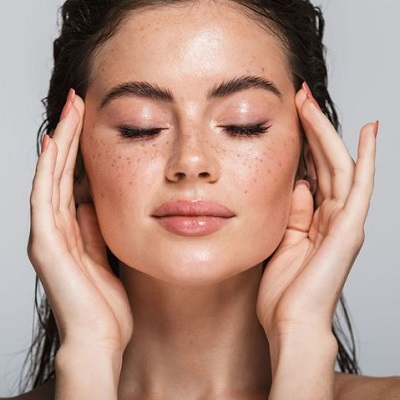Introduction
Acne is a prevalent skin condition that affects individuals of all ages, particularly teenagers and young adults. In Oman, where the climate can exacerbate skin issues, finding effective treatments is essential for managing this condition. The market offers a range of both prescription and over-the-counter (OTC) products designed to combat acne. This article will explore the most effective Best Acne Treatment Oman discussing their ingredients, effectiveness, and suitability for different skin types.
Understanding Acne
Acne occurs when hair follicles become clogged with oil and dead skin cells, leading to the formation of pimples, blackheads, and cysts. Various factors contribute to acne development, including hormonal changes, genetics, diet, and environmental factors. Understanding the type of acne one has is crucial for selecting the appropriate treatment.
Types of Acne
- Comedonal Acne: Characterized by the presence of blackheads and whiteheads, this type occurs when pores are clogged with excess oil and dead skin cells.
- Inflammatory Acne: Includes papules and pustules, which are red, swollen, and painful. This type often requires more intensive treatment.
- Cystic Acne: A severe form that leads to large, painful cysts beneath the skin's surface. Cystic acne may necessitate prescription medications.
Over-the-Counter Acne Treatments
For many, over-the-counter treatments are an accessible first line of defense against acne. Here are some of the most effective OTC options available in Oman:
1. Benzoyl Peroxide
Benzoyl peroxide is a well-known ingredient in many acne products. It works by killing acne-causing bacteria, reducing inflammation, and preventing clogged pores. Available in various forms, including gels, creams, and cleansers, benzoyl peroxide products are effective for mild to moderate acne. Users should start with a lower concentration to minimize irritation.
2. Salicylic Acid
Salicylic acid is a beta hydroxy acid (BHA) that penetrates pores to dissolve excess oil and dead skin cells. It is particularly effective for comedonal acne and is found in various formulations such as cleansers, toners, and spot treatments. Regular use can help prevent future breakouts and improve skin texture.
3. Alpha Hydroxy Acids (AHAs)
Alpha hydroxy acids, such as glycolic and lactic acid, are beneficial for exfoliating the skin's surface. They help to remove dead skin cells, promote cell turnover, and reduce the appearance of acne scars. AHAs are often included in cleansers, exfoliating pads, and serums.
4. Sulfur
Sulfur is a natural ingredient known for its antibacterial properties. It helps to dry out excess oil and reduce the size of acne lesions. Sulfur-containing products are available in creams, masks, and spot treatments, making them suitable for localized treatment.
5. Tea Tree Oil
Tea tree oil is a natural remedy with antibacterial and anti-inflammatory properties. It can be applied directly to the skin in diluted form or found in various topical products. While tea tree oil may not be as potent as benzoyl peroxide, it is a gentler option for those with sensitive skin.
Prescription Acne Treatments
For individuals with moderate to severe acne, prescription treatments may be necessary. Here are some commonly prescribed medications in Oman:
1. Topical Retinoids
Topical retinoids, such as tretinoin and adapalene, are derivatives of vitamin A. They promote cell turnover, helping to prevent clogged pores and reduce inflammation. These are effective for treating both inflammatory and comedonal acne. Side effects can include dryness and irritation, so starting with a lower concentration is advisable.
2. Antibiotics
Topical or oral antibiotics can help reduce inflammation and bacteria on the skin. Commonly prescribed antibiotics include clindamycin and doxycycline. These treatments are typically used in combination with other therapies to enhance effectiveness.
3. Hormonal Treatments
For women, hormonal acne can be treated with hormonal therapies such as oral contraceptives or anti-androgens like spironolactone. These medications help regulate hormonal fluctuations that contribute to acne, particularly in cases related to menstrual cycles.
4. Isotretinoin
Isotretinoin is a powerful oral medication used for severe cystic acne that does not respond to other treatments. While highly effective, it comes with significant potential side effects, including dryness and teratogenic effects during pregnancy. Close monitoring by a healthcare professional is essential.
Lifestyle and Home Remedies
In addition to pharmacological treatments, certain lifestyle changes and home remedies can complement acne management:
- Regular Cleansing: Use a gentle cleanser twice daily to remove excess oil and dirt.
- Moisturizing: Non-comedogenic moisturizers can help maintain skin hydration without clogging pores.
- Healthy Diet: A balanced diet rich in fruits, vegetables, and whole grains can improve skin health. Reducing dairy and sugary foods may also help some individuals.
- Hydration: Drinking plenty of water can aid skin health by keeping it hydrated.
- Avoid Picking: Refraining from picking or squeezing acne lesions can prevent scarring and further irritation.
Conclusion
Managing acne in Oman requires a tailored approach, combining effective OTC and prescription treatments with lifestyle modifications. While over-the-counter options like benzoyl peroxide and salicylic acid can be beneficial for mild cases, more severe or persistent acne may necessitate prescription medications. Consulting a healthcare professional is crucial for creating a personalized treatment plan. With the right strategies and products, individuals can effectively manage their acne and improve their skin health.





Comments